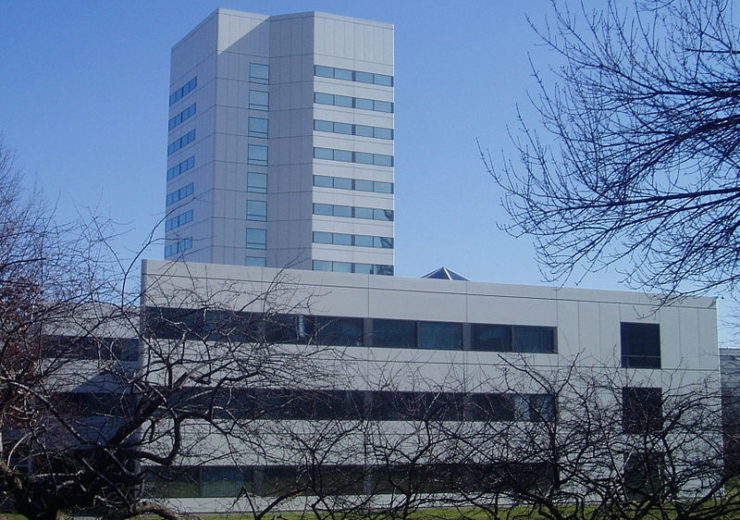Janssen has signed a licensing agreement with Genmab to use its DuoBody technology platform for the production and development of JNJ-6372

Johnson & Johnson headquarters building in New Brunswick, New Jersey. (Credit: Ekem/Wikipedia.)
Janssen, the pharmaceutical business of Johnson & Johnson, has obtained the US Food and Drug Administration (FDA) breakthrough therapy designation for JNJ-61186372 (JNJ-6372) to treat a type of metastatic non-small cell lung cancer (NSCLC)
The regulator has indicated JNJ-6372 for metastatic NSCLC in patients with epidermal growth factor receptor (EGFR) Exon 20 insertion mutations, and disease not progressed with the use of platinum-based chemotherapy.
JNJ-6372 is an EGFR-mesenchymal-epithelial transition factor (MET) bispecific antibody, designed to target activating and resistant EGFR and MET mutations and amplifications.
Janssen has signed a license and partnership agreement with Genmab to use its DuoBody technology platform for the production and development of the antibody.
Janssen Research & Development oncology global therapeutic area head Peter Lebowitz said: “JNJ-6372 is a novel bispecific antibody that we believe has the potential to benefit patients with Exon 20 mutation insertions who often do not respond to currently available oral EGFR-targeted or immune checkpoint inhibitor therapies.
“This Breakthrough Therapy Designation is a significant milestone in our ongoing efforts to advance JNJ-6372 in clinical development and target genetically-defined lung cancer.”
FDA breakthrough therapy designation for JNJ-6372 is based on NCT02609776 trial
Patients with NSCLC and EGFR Exon 20 insertion mutations would develop a disease that is insensitive to EGFR tyrosine kinase inhibitor (TKI) treatments and carries a worse prognosis compared to patients with more common EGFR mutations.
Janssen said that conventional cytotoxic chemotherapy is used as the standard of care for patients with lung cancer who have EGFR Exon 20 insertion mutations, and no FDA-approved targeted therapies are currently available for this patient population.
The FDA breakthrough therapy designation for JNJ-6372 is based on the data from a Phase 1, first-in-human, open-label, multicentre study NCT02609776.
The study evaluated the safety, pharmacokinetics and preliminary efficacy of JNJ-6372 monotherapy and in combination with lazertinibi, a third-generation EGFR TKI, for advanced NSCLC.
The company said that the clinical trial was aimed at determining the recommended Phase 2 dose in patients with advanced NSCLC, and the patient enrolment into the Part 2 dose expansion cohorts is underway.
